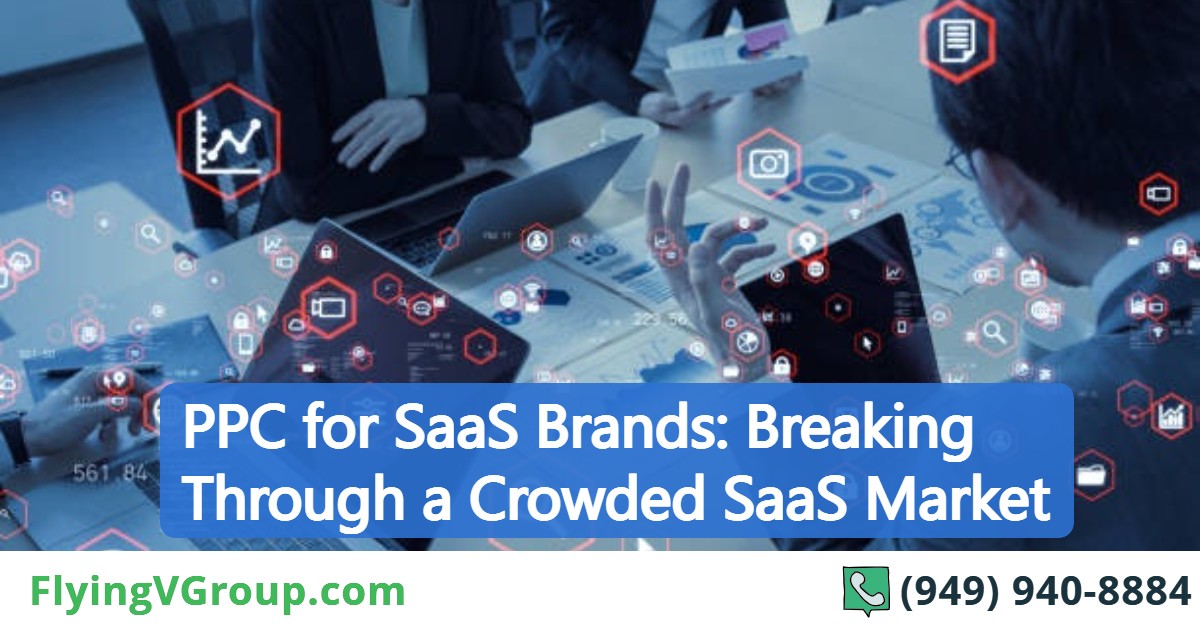Are you a startup software-as-a-service company looking for a less expensive way to increase your visibility and conversions?
BetterCloud’s 2021 State of SaaSops Report showed a 38% boost in the adoption of SaaS-based apps by different organizations between 2020 to 2021.
(Source: BetterCloud)
For SaaS businesses, it can be challenging to find the perfect balance between inbound marketing (traffic-building) and outbound marketing (traffic-driving).
While it’s true that many great companies have become successful through only inbound marketing, many more are also turning to paid traffic to improve their sales conversions and customer acquisition costs (CAC).
So, as a SaaS business owner or marketer, you might wonder whether it’s worth your time and money to try PPC marketing or stick with inbound tactics like blogging, social media marketing, and email marketing.
Here’s everything you need to know about running PPC for SaaS advertising campaigns. We will guide you to get a good ROI from your paid search efforts without wasting money on ads that don’t connect with your target audience.
We’ll discuss all of these under five broad headlines—
- PPC marketing for SaaS companies
- Key benefits of PPC in marketing your SaaS brand
- The challenges of SaaS PPC
- 4 Networks to focus on to maximize conversions (Google, Facebook, LinkedIn, and Twitter)
- Strategies for PPC success
We’ve got a lot to cover, so let’s get started.
PPC Marketing for SaaS Companies
Typically, software-as-a-service companies deliver applications you can easily access via the internet. They offer features like–
- Application hosting on the cloud
- Marketplace of integrations
- Flexibility and scalability
- Straightforward pricing catalog
- Hassle-free implementation
And a host of others.
(Source: Toolbox)
To succeed in the crowded SaaS market, you need to stand out above the rest by paying close attention to your marketing efforts.
While many SaaS companies focus on more traditional tactics like blogging and content marketing, PPC marketing offers many advantages, including immediate feedback on what works and what doesn’t with your potential customers.
Traditional marketing is expensive, mainly when your brand is young and new. The good news: you don’t have to spend a fortune on advertising.
The more budget-friendly alternative?
Pay-per-click (PPC) advertising. With PPC, brands only pay when a user clicks through an ad, making it cost-effective to grow your customer base without breaking the bank.
SaaS PPC has proven very effective in increasing brand awareness and boosting conversions. Clutch reports that about 45% of small businesses devote 30% of their SaaS marketing budget to PPC campaigns.
(Source: Clutch)
Read on to learn
more about how and why you should use PPC for SaaS brands.
Key Benefits of PPC in Marketing your SaaS Brand
What are some advantages of PPC marketing for SaaS companies?
There are several advantages of using SaaS PPC ads over other forms of online advertising.
(Source: Superior WebWorks)
Here are just a few:
1. Cost-effectiveness
One of the most significant advantages of using SaaS PPC ads is that they can be pretty affordable. You only pay when someone clicks on your ad, so you don’t have to worry about paying for impressions or even clicks that lead nowhere.
Additionally, you can set daily budgets and stop your campaign if it isn’t working out as planned. This advantage makes PPC an excellent option if you’re starting with little capital and want to make sure you don’t spend too much money on your saas strategy before seeing results.
2. Targeting
Since you can target your SaaS ads based on location, demographics, and more, you can be sure that your audience is highly qualified. It makes it more likely that they’ll convert when they see your SaaS ad—and less likely that you’ll pay for clicks from people who aren’t interested in what you have to offer.
3. Speed
Another advantage of using PPC for SaaS advertising over other forms of SaaS digital marketing is that it tends to be much faster than other options. For example, if you want to start an SEO marketing campaign, you may need to wait weeks or months before seeing results.
With PPC ads, however, changes are almost instantaneous—so if something isn’t working out as planned (or if something does work well), you can make adjustments quickly and try again with minimal delay.
4. Results Tracking
When you use PPC ads, you have access to powerful tools to track your results in real-time. It allows you to see what works and what doesn’t to adjust your SaaS strategy accordingly.
5. Flexibility
Finally, another significant advantage of using SaaS PPC ads over other types of digital marketing for SaaS startups is flexibility. For example, you can choose when and how often your SaaS ads are displayed—and even who sees them.
You can also quickly stop or change your campaign if something isn’t working out as planned or if you decide you want to try something new. Hence, it becomes easy to experiment with different strategies until you find a SaaS marketing plan that works well for your growing software-as-a-service business.
The Challenges of SaaS PPC
There are many reasons why SaaS PPC campaigns underperform.
If you’re running a SaaS PPC campaign, you’ve probably glimpsed some of the challenges associated with a SaaS marketing plan.
So why does SaaS PPC seem so difficult?
1. No Easy Fixes or Shortcuts
There are no easy fixes or shortcuts for an effective SaaS digital marketing campaign. You can’t throw money at a problem and expect it to disappear. Instead, you need to understand what is causing your keyword performance issues so you can tackle the problem from its root.
2. Low Average Conversion Rates for SaaS Companies
According to Umami, the typical conversion rate for PPC for SaaS is 7%, but it depends mainly on your keyword selection.
However, the general typical conversion rate for PPC for SaaS businesses could also range between 2 to 7%, depending on the keyword used.
In cases where the conversion rate is low, it could be because most people aren’t actively looking to buy a product like yours when they come across your SaaS ads on Google or Facebook. So you need to provide more value upfront to get them interested enough in your product to convert.
That means you need strong ad copy and landing pages—and lots of testing!
3. Narrow Targeting
One of the most common reasons SaaS PPC campaigns underperform is that they’re too broad and not specific enough to your business.
You need to make sure you’re using very relevant keywords to your business, which means adding negative keywords and making sure you’re only bidding on pertinent search queries.
For example, you should avoid bidding on CRM software reviews if you sell CRM software.
4 Networks to Focus on to Maximize Conversions (Google, Facebook, LinkedIn, and Twitter)
The best way to spend your ad budget is on highly-targeted, low-cost marketing SaaS platforms like Google, Facebook, Twitter, and LinkedIn. These social channels are ideal for connecting with potential buyers. Plus, their low cost can work if you’re just starting and trying to reach a broad audience quickly.
Let’s examine these top paid marketing SaaS platforms more closely.
Google Ads
Google Ads for SaaS is an ideal choice because its low cost works in favor of digital marketing for SaaS startups looking for a highly targeted audience.
You can create simple text ads that link directly to your landing page or website. These forms of Google Ads for SaaS will allow potential customers to learn more about what you do.
Facebook Ads
Facebook Ads for SaaS companies is another great digital marketing for SaaS startups alternative if you want to grow your brand without breaking the bank.
Facebook ads for SaaS B2B marketing allow you to target specific demographics based on age, gender, and location. It helps ensure that only those most likely interested in your product see your SaaS ads and click through to your site.
Twitter Promoted Tweets/Tweets with a Link/Promoted Accounts/Promoted Trends
Many people overlook Twitter as a paid advertising platform, but it’s perfect for SaaS B2B marketing startups because it has high engagement rates. In addition, you don’t have to pay unless someone clicks on your ad (unlike Google Ads).
LinkedIn Sponsored Updates
LinkedIn Sponsored Updates are similar to Facebook Ads. They help you connect with potential customers by displaying targeted content in front of them based on their demographic information and interests.
You can also show company updates to all of your followers instead of just individual posts.
Strategies for PPC Success
Using PPC to find qualified leads and drive sales can be incredibly beneficial. But, success requires serious planning—and a lot of hard work. Below are 7 strategies you should incorporate into their PPC campaign to maximize results.
1. Ensure that Your PPC Strategy is Goal-driven
Creating a goal-driven SaaS marketing plan can help your company earn more credibility, leads, conversions, and customers.
The goal of your chosen PPC for SaaS campaigns will change depending on where your consumers are in the sales funnel.
(Source: Smart Insights)
People new to your brand are more likely to respond positively to an ad campaign designed to raise brand recognition and reach.
Sales-focused ad campaigns might be targeted toward buyers nearing the conclusion of the sales funnel or those who are new to your brand.
Finally, your ad wording, audience, keywords, and messaging should all be based on your PPC goal.
2. Focus on Qualifying Leads
Successful PPC campaigns will get you qualified leads by allowing you to understand better who is visiting your site and why they visit. Qualified leads are more likely to convert than non-qualified ones.
(Source: Super Office)
3. Use Negative Keywords
Google Ads allows advertisers to exclude specific keywords from their campaign, which can help reduce irrelevant traffic and prevent wasted spend.
4. Make a Plan for Conversion
Before you start creating ads, you need to have a plan of action that will tell you what you want visitors to do when they land on your site after clicking on an ad—and how you’ll measure success.
(Source: Einstein Marketer)
5. Find Relevant Keywords
Finding relevant keywords is one of the essential parts of any successful campaign, and it can be tricky to master. It all comes down to relevancy: if you can find highly relevant keywords that aren’t too competitive, you’re well on your way to getting conversions at a reasonable cost per click (CPC).
6. Use the Different Marketing Assets at your Disposal
Most SaaS businesses will have a robust collection of assets, ranging from video ads to blogs and whitepapers.
Use these marketing materials as ad extensions, ad visuals for display ads, or include them in your PPC landing page to get the most out of your PPC for SaaS campaigns.
These resources can adequately educate and nurture your audience, allowing them to convert later.
Assume you want to create a PPC campaign focused on lead generation. For example, you can design a lead generation campaign for a detailed whitepaper or put an explainer video on your landing page to educate visitors and drive them through the buyer journey.
(Source: Business2Community)
Integrate assets into your overall PPC campaign by matching them to various buyer journey stages.
7. Optimize Landing Pages
Once you know what people are searching for when they see your ad, you need to make sure they land on an optimized page to convert them into leads or customers. If visitors land on a page with content or images that don’t match their expectations, they may bounce right off your site—and never come back.
8. Optimize Your PPC Ads
PPC advertising is a great way to generate leads and new customers. However, setting up your saas marketing strategy to optimize and produce quality leads can be complex and confusing.
There are different parts of your campaign depending on where you’re currently at, what stage of business development you’re in, and what success looks like for your company.
Understanding these parts helps optimize your campaign easier by breaking it into manageable tasks that give you clear objectives.
Understanding the PPC Optimization Process
Here is what the SaaS PPC optimization process looks like:
- Strategy
- Keyword research
- Ad creation
- Ad testing
- Bidding
- Reporting
- Analyzing changes
- Adjustments
(Source: Similarweb)
However, the stages of Saas PPC optimization are split into 2 main parts: lead generation and customer acquisition.
These two phases overlap, but when optimizing your campaign, you need first to prioritize lead generation and then move on to customer acquisition.
Understanding How Lead Generation Works for SaaS:
In lead generation, you find people interested in a particular product or service who may become new customers down the line.
Understanding How Customer Acquisition Works for SaaS:
Here, you’re looking at optimizing your campaign to convert leads into customers—which involves getting potential customers to take specific actions that will lead them towards becoming paying customers.
Launch Your SaaS PPC Ad Campaign Now!
According to Bill Bernbach, one of the advertising industry’s recognized influencers, “Nobody counts the number of ads you run; they just remember the impression you make.”
When creating your SaaS PPC ads, they must make an excellent impression to convert your target customers.
However, this often requires the help of a SaaS advertising company with a certain level of expertise that you may not have.
And that’s where we come in.
At Flying V Group, we can help you create a PPC for SaaS campaigns that will leave a lasting impression on your target audience. So reach out to us today.
SHARE THIS POST
Thank you so much for reading PPC for SaaS Brands: Breaking Through a Crowded SaaS Market . We really appreciate it! If you have any questions about our article, or can suggest any other topics you think we should explore, feel free to let us know.
Be sure to sign-up for our newsletter to receive monthly emails on all of the latest trends and happenings in the digital marketing space. You will also receive our FREE E-Book with the Amazing Marketing Tools for Powerful Business Growth. Sign-up below!
Also, if you received some value out of this article, please share with your friends or colleagues, or leave a comment/question below. We really appreciate you reading our blog and every share/comment means the world to us and allows us to continue producing valuable tools to help you grow your business!





0 Comments